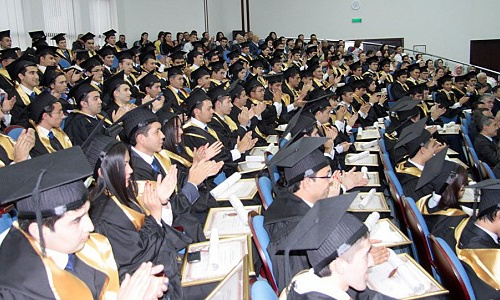Introduction
In today’s rapidly evolving educational landscape, the role of a Bachelor of Education (B.Ed.) degree has never been more crucial. As the demand for skilled and qualified educators continues to grow, B.Ed. graduates play a vital role in shaping the minds and futures of the next generation. This article explores the multifaceted role of a Bachelor of Education in modern teaching, from foundational knowledge and pedagogy to specialized training, integration of technology, adaptability, and lifelong learning.
Foundational Knowledge and Pedagogy
Core Subjects and Curriculum
Bachelor of Education programs provide students with a solid foundation in core subjects such as mathematics, science, English, and social studies, as well as specialized courses in educational theory, curriculum development, and instructional strategies.
Educational Psychology and Child Development
Understanding the principles of educational psychology and child development is essential for effective teaching. B.Ed. programs include coursework in areas such as learning theories, cognitive development, motivation, and classroom management techniques.
Pedagogical Approaches and Teaching Methods
B.Ed. programs introduce students to a variety of pedagogical approaches and teaching methods, including experiential learning, inquiry-based instruction, collaborative learning, and differentiated instruction, equipping them with the tools and strategies needed to meet the diverse needs of learners.
Specializations and Focus Areas
Subject Specializations
Many B.Ed. programs offer opportunities for students to specialize in a particular subject area or grade level, allowing them to develop expertise in their chosen field and prepare for careers as subject-area specialists or department heads.
Educational Leadership and Administration
Some B.Ed. programs offer concentrations in educational leadership and administration, preparing students for roles such as school principals, department chairs, or curriculum coordinators, where they can lead and support teaching and learning at the school or district level.
Special Education and Inclusive Teaching
B.Ed. programs often include coursework in special education and inclusive teaching practices, providing students with the knowledge and skills needed to support students with diverse learning needs and create inclusive learning environments.
Practical Training and Classroom Experience
Teaching Practicum and Internship
One of the hallmarks of B.Ed. programs is the opportunity for students to gain hands-on teaching experience through practicum placements and internships in real classroom settings, where they can apply theoretical knowledge in practical contexts under the guidance of experienced educators.
Classroom Management and Instructional Strategies
B.Ed. programs emphasize the importance of effective classroom management and instructional strategies, equipping students with the skills to create positive learning environments, manage student behavior, and deliver engaging and effective instruction.
Assessment and Evaluation Techniques
B.Ed. programs teach students how to design and implement assessment and evaluation techniques to measure student learning and progress, including formative and summative assessments, standardized testing, and performance-based assessments.
Integration of Technology and Digital Literacy
Technology in Education
In today’s digital age, technology plays a central role in education. B.Ed. programs incorporate training in educational technology and digital literacy, teaching students how to integrate technology into their teaching practice to enhance student engagement, facilitate learning, and promote digital citizenship.
Digital Tools and Resources
B.Ed. programs familiarize students with a variety of digital tools and resources, including interactive whiteboards, educational software, online learning platforms, and multimedia resources, that can be used to create engaging and interactive learning experiences for students.
Blended Learning and Online Instruction
B.Ed. programs prepare students to leverage blended learning and online instruction to meet the diverse needs of learners and facilitate flexible and personalized learning experiences, integrating online resources, multimedia materials, and interactive activities into their teaching practice.
Adaptability and Lifelong Learning
Professional Development Opportunities
B.Ed. graduates understand the importance of continuous professional development and lifelong learning. They actively seek out opportunities for professional growth and development, such as attending conferences, workshops, and seminars, pursuing additional certifications or endorsements, and participating in online courses and webinars.
Keeping Pace with Educational Trends
B.Ed. graduates stay informed about the latest trends and developments in education, including changes in curriculum standards, advancements in educational technology, and emerging pedagogical approaches, so they can continually adapt and refine their teaching practice to meet the evolving needs of students.
Continuing Education and Advanced Studies
Many B.Ed. graduates pursue advanced studies and continuing education opportunities to expand their knowledge and expertise in specific areas of interest, such as educational leadership, curriculum development, or special education, and to advance their careers in the field of education.
Conclusion
The role of a Bachelor of Education in modern teaching is multifaceted and dynamic, encompassing a broad range of knowledge, skills, and responsibilities. From foundational knowledge and pedagogy to specialized training, integration of technology, adaptability, and lifelong learning, B.Ed. graduates play a vital role in shaping the future of education and empowering students to succeed in a rapidly changing world.
FAQs
What is the role of a Bachelor of Education degree in modern teaching?
A Bachelor of Education degree prepares graduates for careers as educators, providing them with the knowledge, skills, and training needed to teach effectively, support student learning and development, and contribute to the field of education in meaningful ways.
How does practical training prepare educators for the classroom?
Practical training, such as teaching practicum and internships, provides B.Ed. students with hands-on experience in real classroom settings, where they can apply theoretical knowledge in
